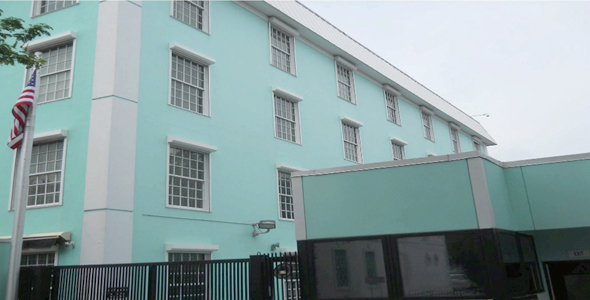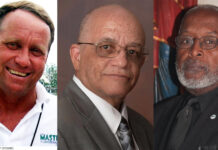
As part of the Department of State’s continuous efforts to provide U.S. citizens traveling abroad with information about safety and security events, we are updating the Worldwide Caution with information on the continuing threat of terrorist actions, political violence, and criminal activity against U.S. citizens and interests abroad. This replaces the Worldwide Caution dated September 14, 2017.
As terrorist attacks, political upheaval, and violence often take place without any warning, U.S. citizens are strongly encouraged to maintain a high level of vigilance and take appropriate steps to increase their security awareness when traveling. To better prepare for possible emergencies, U.S. citizens are encouraged to read Country Specific Information pages, Travel Warnings, and Travel Alerts on travel.state.gov before planning a trip.
Travelers are urged to enroll in the Smart Traveler Enrollment Program(STEP)to receive security messages and make it easier to locate you in an emergency. The Department uses these security messages to convey information about terrorist threats, security incidents, planned demonstrations, natural disasters, etc. In an emergency, please contact the nearest U.S. Embassy or Consulate or call the following numbers: 1-888-407-4747 (toll-free in the United States and Canada) or 1-202-501-4444 from other countries.
U.S. government facilities worldwide remain at a heightened state of alert. These facilities may temporarily close or periodically suspend public services to assess their security posture. In those instances, U.S. embassies and consulates will make every effort to provide emergency services to U.S. citizens. U.S. citizens abroad are urged to monitor the local news and maintain contact with the nearest U.S. embassy or consulate.
Terrorist groups including ISIS, al-Qa’ida, their associates, and those inspired by such organizations, are intent on attacking U.S. citizens wherever they are. Extremists may use conventional or non-conventional weapons to target U.S. government and private interests. Terrorists are increasingly using less sophisticated methods of attack to more effectively target crowds, including the use of edged weapons, pistols, and vehicles as weapons. Extremists increasingly aim to assault “soft” targets, such as:
high-profile public events (sporting contests, political rallies, demonstrations, holiday events, celebratory gatherings, etc.)
hotels, clubs, and restaurants
places of worship
schools
parks
shopping malls and markets
tourism infrastructure
public transportation systems
airports
In multiple regions, terrorists, guerrilla groups, and criminals seek to kidnap U.S. citizens to finance their operations or for political purposes. In the wake of well-publicized attacks against commercial aircraft in Egypt by ISIS and Somalia by al-Shabaab, the Department remains concerned that terrorists could again seek to down aircraft using concealed explosives or hijack commercial flights.
Private U.S. citizens should not travel to any country to participate in armed conflict. U.S. citizens are reminded that fighting on behalf of or providing other forms of support to designated terrorist organizations can constitute the provision of material support for terrorism, which is a serious crime that can result in penalties, including prison time and large fines.
In addition to concerns stemming from terrorism, travelers should be alert to the possibility of political unrest, violence, demonstrations, and criminal activities when traveling. Country-specific information pages and Travel Warnings should be consulted to obtain the latest data on such threats.
For further information:
· See the Department of State’s travel website for the Worldwide Caution, Travel Warnings, Travel Alerts, and Country Specific Information.
· Follow us on Twitter and Facebook.
· The Department of State’s Overseas Security Advisory Council (OSAC) provides several resources to enhance the safety and security of the U.S. private sector abroad. Additional information on OSAC can be found on OSAC.gov or by following OSAC on Twitter.
· Mariners and U.S. citizens considering maritime travel should also review information at the websites of the National Geospatial Agency, the Maritime Security Communications with Industry Portal, and the U.S. Coast Guard for information related to maritime and port security globally.
· Enroll in the Smart Traveler Enrollment Program (STEP) to receive security messages and make it easier to locate you in an emergency.
· Contact the U.S. Embassy in The Bahamas, located at 42 Queen Street (across from the British Colonial Hilton Hotel), Nassau; telephone: 242-322-1181; ACS unit fax: 242-356-7174; e-mail: ACSNassau@state.gov ; web page: https://bs.usembassy.gov. [Note: The Turks & Caicos U.S. Consular Agency is currently CLOSED. The Consular Agency is located at 2 Ventura Ct., Grace Bay Suite 102E, Providenciales, Turks and Caicos Islands; telephone: 649-232-5713; e-mail: ACSNassau@state.gov .]
· Call 1-888-407-4747 toll-free in the United States and Canada or 1-202-501-4444 from other countries from 8:00 a.m. to 8:00 p.m. Eastern Standard Time, Monday through Friday (except U.S. federal holidays).







